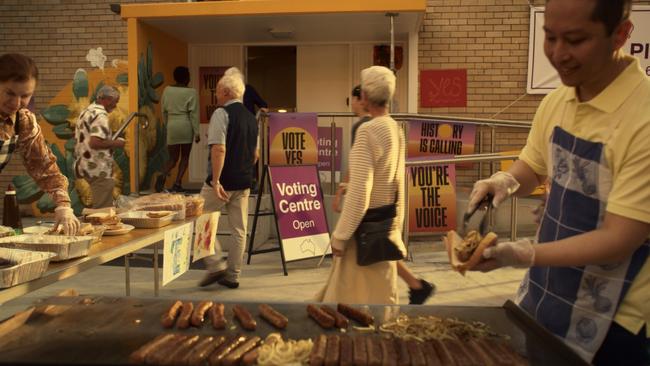
But inexplicably, this has not satisfied their requests for information. Meanwhile opposition to the proposal continues to rise. This week a poll revealed support for the Voice had fallen to 43 per cent. Compare this to the figure of 64 per cent in favour this month last year. How has it come to this?
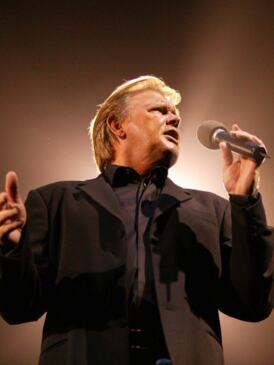
Presumably it must be that decent and right-minded Australians are in the minority. As Tim Wheatley, son of Farnham’s late manager Glenn Wheatley, told the ABC last week: “Win or lose this referendum, this song will forever remain on the right side of history”.
It is a serene and self-satisfying rationale. You need not worry yourself about the practicalities and consequences of constitutional change. Rather, it is about being on the side of the angels. Take a selfie when you register your yes vote and post it on social media. Bask in the number of likes you receive while loudly lamenting that not all your fellow citizens share your dedication to righting historical wrongs.
Launch of the @ulurustatement tonight at the Corner Hotel - Rob Farnham, Tim and Gaynor Wheatley talking about how fast John Farnham agreed to using You’re the Voice in the Vote Yes ad pic.twitter.com/drRTZJY2rv
— Cameron Adams (@cameron_adams) September 3, 2023
According to the Yes campaign, the need for change is so self-evident it needs no in-depth explanation. Citing the management of Indigenous affairs in the legislative and executive sphere, they quote Einstein’s apocryphal dictum of insanity being a case of doing the same thing repeatedly and expecting different results.
They do have a point. For example, Indigenous Australians feature disproportionately in many negative groupings, whether it is low life expectancy, serious health conditions, unemployment, failure to complete school, poverty, and the criminal justice system. For decades, and particularly so in recent years, the root causes are attributed to the evils of white settlement. To suggest otherwise is to invite shrill accusations of racism.
So what is the answer? Well, the insistence that to be Indigenous is to be hopelessly disadvantaged will no longer be a mere narrative. Instead the Albanese government wants to enshrine this presumption in perpetuity in the constitution. Different results, here we come!
As to how the Voice would improve dialogue between Indigenous and non-Indigenous Australians, I can think of no better example than Professor Marcia Langton, the matriarch of the Referendum Working Group. Many a time this elegant and erudite spokeswoman has suffered the effrontery of No campaigners questioning her vision.
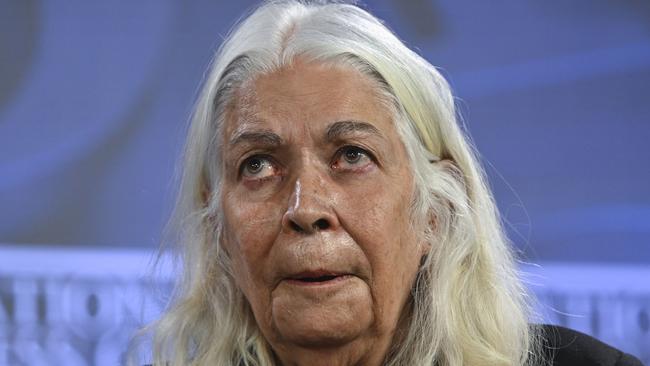
Yet without exception in the face of this gross impertinence her response has been one of informed rebuttal and kindness, whether it is by claiming her opponents are motivated by “racism” and “sheer stupidity” and act with “cynicism and redneck opportunism”. No-one in this campaign has done as much as the good professor in helping the undecided how to vote.
Still, it has been a tedious and draining experience for our elites in answering the naysayers. Claiming the Voice would if anything “reduce the divisiveness in our constitutional structure,” former NSW chief justice James Spigelman KC was indignant at the suggestion the proposed change could fuel judicial activism.
“As a former judge, I find it offensive that some participants in this debate cast doubts on the integrity of our judiciary when predicting what might happen if this [constitutional] addition is made,” he wrote in the Sydney Morning Herald this week. That is one of the many terrible consequences of not trusting absolutely our unelected officials with interpreting ambiguous and poorly worded constitutional additions, you see. It offends very important people.
We should also acknowledge the determined efforts of Prime Minister Anthony Albanese. Admittedly he was not quite across his brief in pushing for constitutional change, having read only the first page of the lengthy Uluru Statement. But in fairness, that was a pretty good effort from Albo, given his attention span and ability to absorb detail.
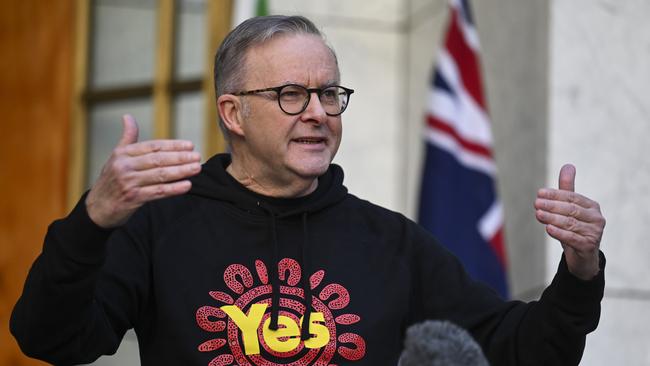
And it was perplexing that voters by and large have not been persuaded by Albanese’s statesmanlike speeches. Who could not be moved by incessant repetition of platitudes such as “It’s a generous offer”, “It’s our chance to walk together”, “It’s simply good manners”, and “It’s a modest request”? Perhaps the Prime Minister could make another appearance with the new Qantas fleet in the background sporting those Yes23 logos. This week would be a timely opportunity to reiterate that this good corporate citizen is also on the right side of history.
The world is watching us with expectation, or so Albanese would have you believe. In February, he piously asked how Australia, would be “perceived internationally” by our “economic partners” if the Voice did not get up. It requires a special chutzpah for a leader espousing unity to subject Australians to a highly divisive race referendum while resorting to emotional blackmail for political expediency. He is right though: our international reputation is at stake if this campaign fails. It could result in a critical BBC news article or worse still an angry letter from a UN human rights committee.
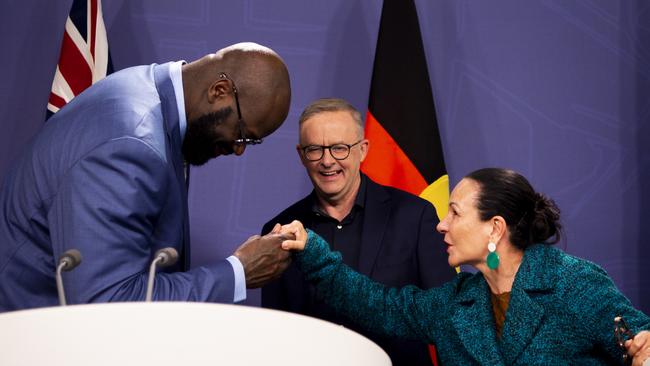
Incidentally, is there any chance of Albanese making good on his promise for former NBA star Shaquille O’Neal to make, in the Prime Minister’s words, some “vids” to promote the Voice? His celebrity endorsement would fittingly symbolise this government’s record of attempting to connect with everyday Australians and explain a complex issue.
As for you, the voter, do not let yourself be deceived by scare campaigns. We are on the cusp of historic change. The Voice will deliver reconciliation. It will result in harmony, peace, and progress. It is not the harbinger of treaties, reparations, or so-called truth-telling. And it is fiction to say this is the first step towards a New Zealand-style co-governance model.
The Voice is the culmination of what Indigenous activists have long wanted. When it is realised, they will no longer issue further demands for special considerations and privileges. To paraphrase John Farnham, this will be the last time.



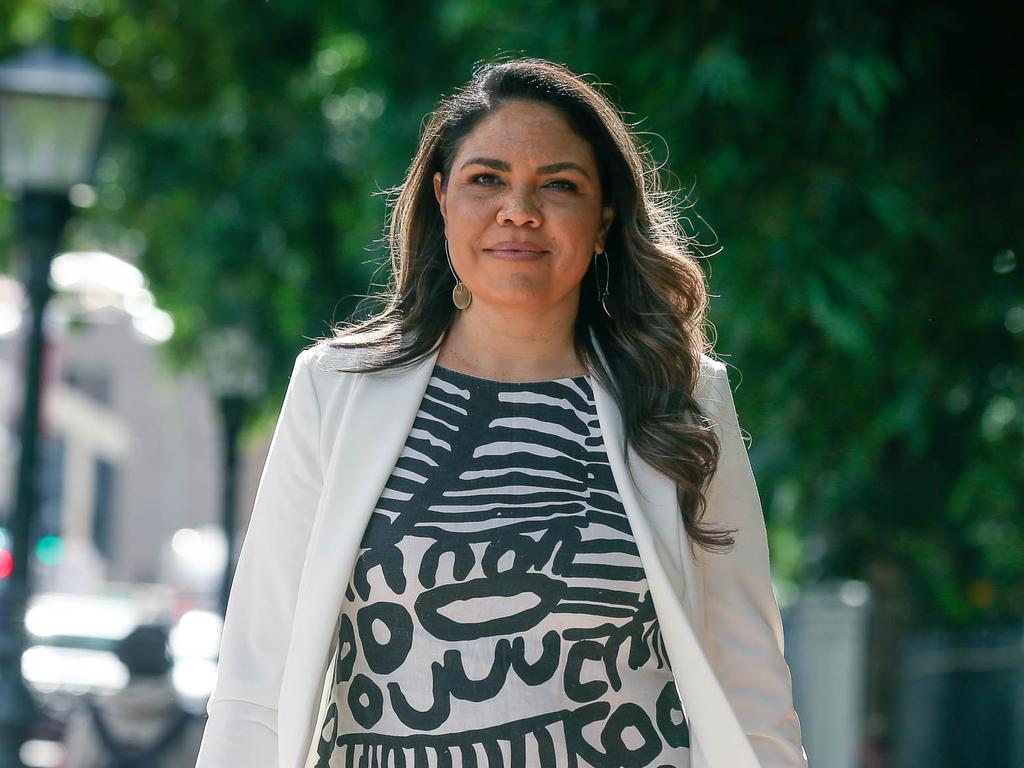
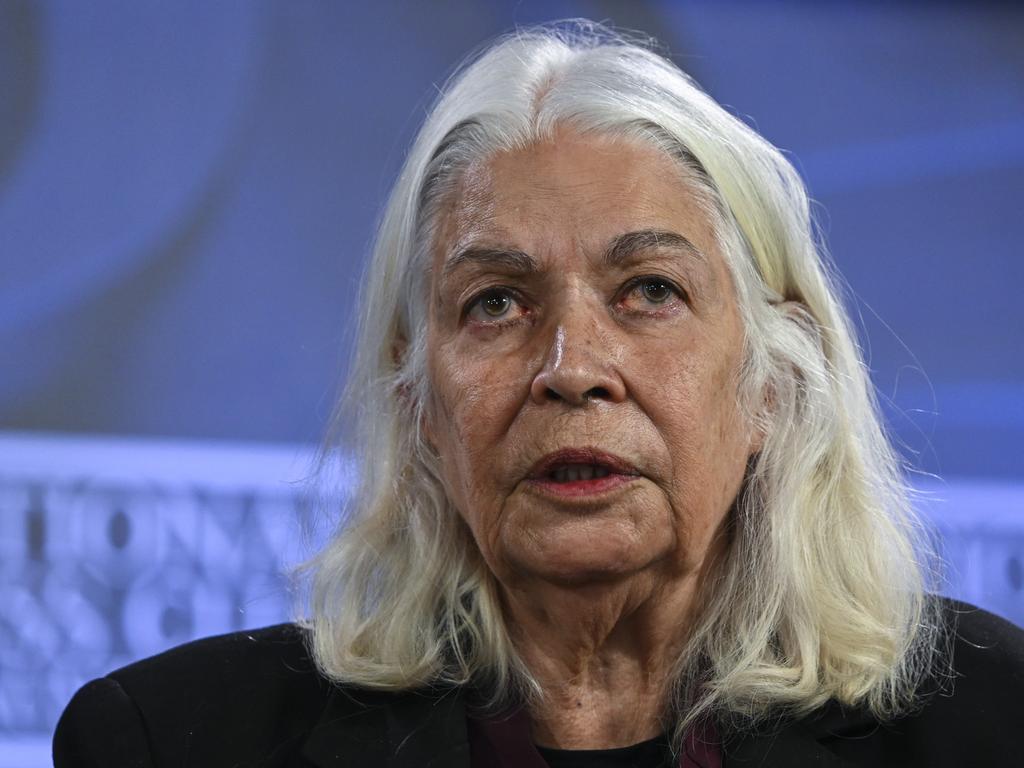
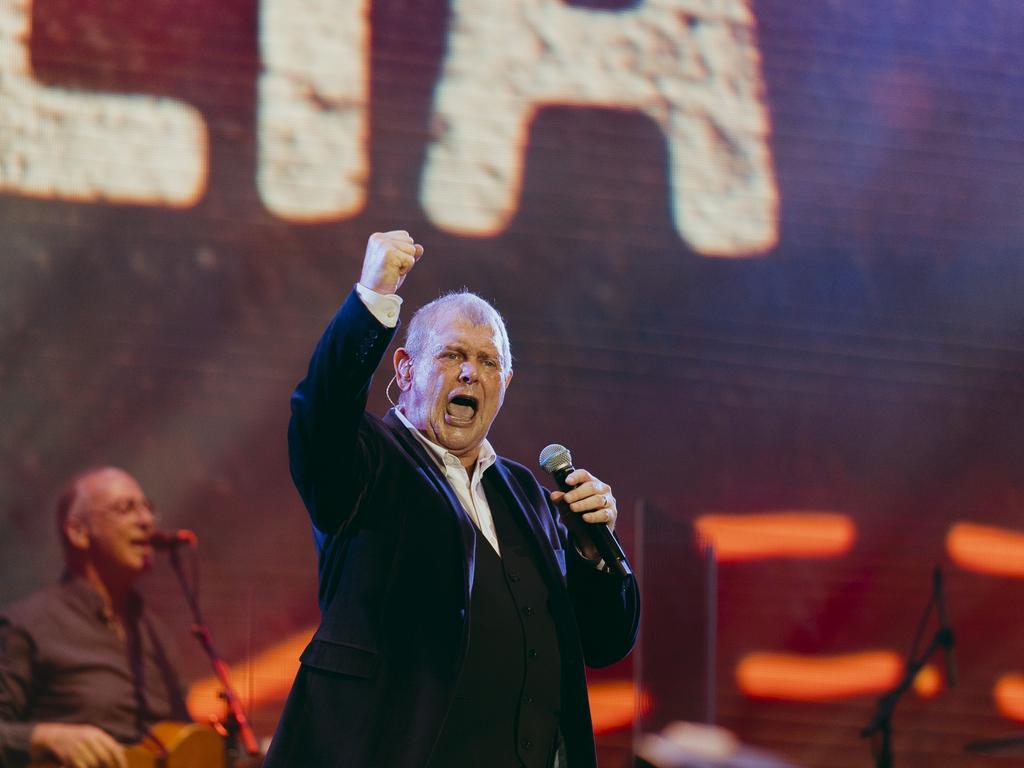


The undecided camp in the upcoming Indigenous voice to parliament referendum are a fickle lot. They insist the Albanese government provide them with details of the scope, composition, and structure of this proposed constitutional body. What better way to allay their concerns than by wheeling out entertainer John Farnham to sing ‘You’re the Voice’?